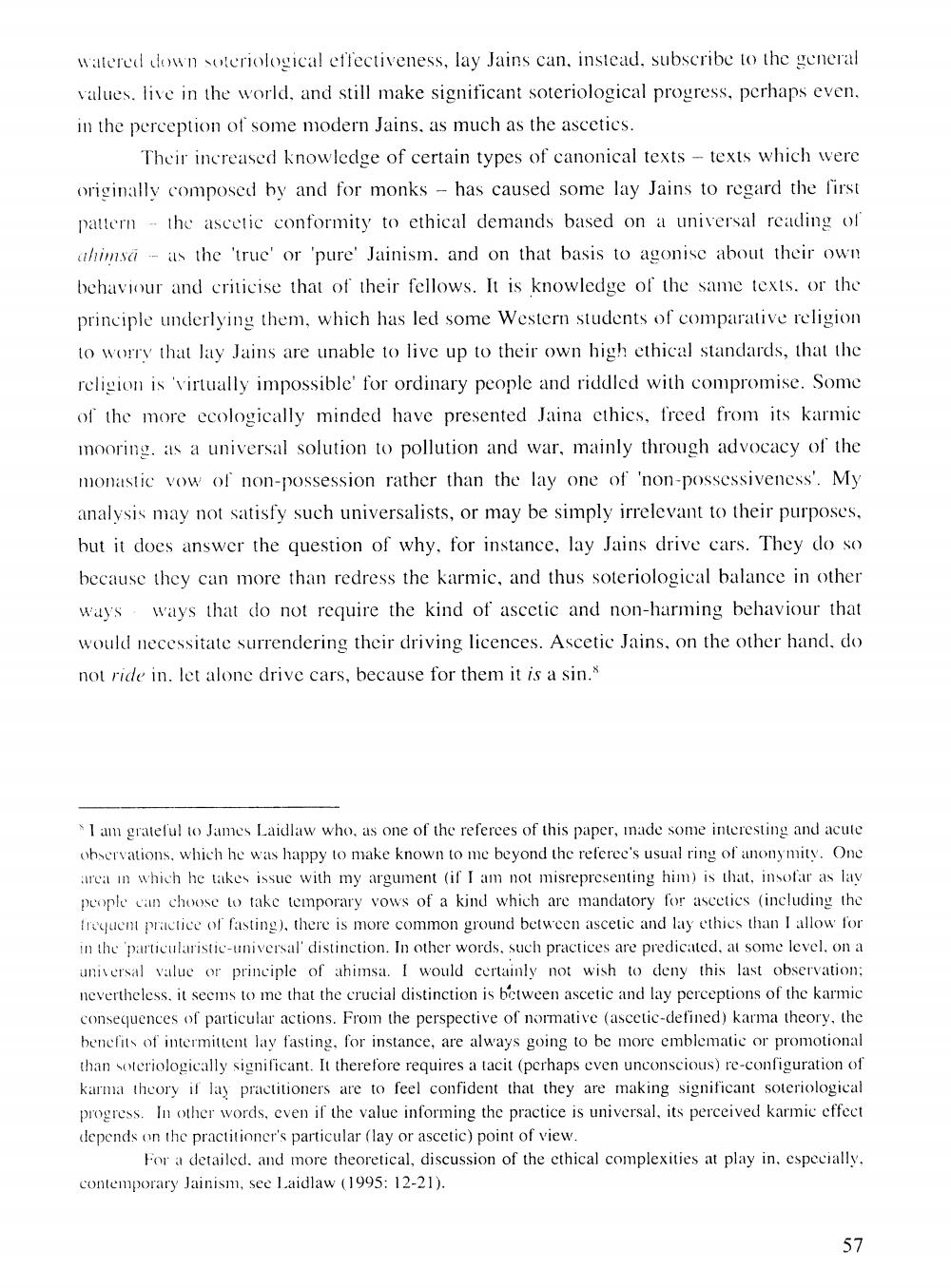________________
watered down soteriological effectiveness, lay Jains can, instead, subscribe to the general values, live in the world, and still make significant soteriological progress, perhaps even, in the perception of some modern Jains, as much as the ascetics.
Their increased knowledge of certain types of canonical texts - texts which were originally composed by and for monks - has caused some lay Jains to regard the first pattern - the ascetic conformity to ethical demands based on a universal reading of ahimsa - as the 'true' or 'pure' Jainism, and on that basis to agonise about their own behaviour and criticise that of their fellows. It is knowledge of the same texts, or the principle underlying them, which has led some Western students of comparative religion to worry that lay Jains are unable to live up to their own high ethical standards, that the religion is 'virtually impossible' for ordinary people and riddled with compromise. Some of the more ecologically minded have presented Jaina cthies, freed from its karmic mooring, as a universal solution to pollution and war, mainly through advocacy of the monastic vow of non-possession rather than the lay one of 'non-possessiveness'. My analysis may not satisfy such universalists, or may be simply irrelevant to their purposes, but it does answer the question of why, for instance, lay Jains drive cars. They do so because they can more than redress the karmic, and thus soteriological balance in other Way's ways that do not require the kind of ascetic and non-harming behaviour that would necessitate surrendering their driving licences. Ascetic Jains, on the other hand, do not ride in. let alone drive cars, because for them it is a sin.
I am grateful to James Laidlaw who, as one of the referees of this paper, inade some interesting and acute observations, which he was happy to make known to me beyond the referee's usual ring of anonymity. One area in which he takes issue with my argument (if I am not misrepresenting him) is that, insofar as lav people can choose to take temporary vows of a kind which are mandatory for ascetics (including the frequent practice of fasting), there is more common ground between ascetic and lay ethics than I allow for in the particularistic-universal' distinction. In other words, such practices are predicated, at some level, on a universal value or principle of ahimsa. I would certainly not wish to deny this last observation; nevertheless, it seems to me that the crucial distinction is between ascetic and lay perceptions of the karmic consequences of particular actions. From the perspective of normative (ascetic-defined) karma theory, the benefits of intermittent lay fasting, for instance, are always going to be more emblematic or promotional than soteriologically significant. It therefore requires a tacit (perhaps even unconscious) re-configuration of karma theory is lay practitioners are to feel confident that they are making significant soteriological progress. In other words, even if the value informing the practice is universal, its perceived karnic effect depends on the practitioner's particular (lay or ascetic) point of view.
For a detailed, and more theoretical, discussion of the ethical complexities at play in, especially, contemporary Jainism, see Laidlaw (1995: 12-21).
57




